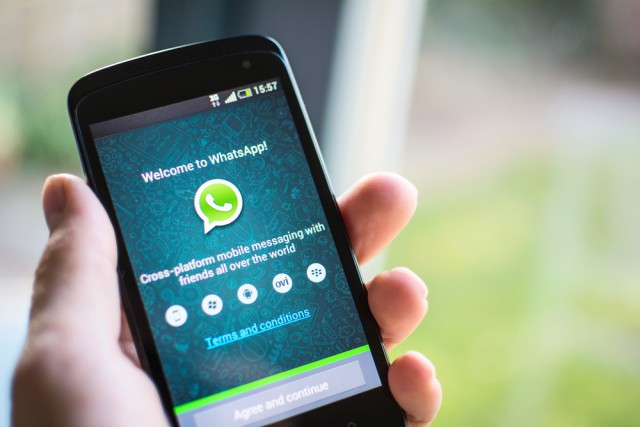Full end-to-end encryption shows WhatsApp is serious about privacy

Encryption has been a hot topic for some time, but the battle between Apple and the FBI really brought it to the fore in recent weeks. In response to the FBI trying -- ultimately successfully -- to crack into the San Bernardino shooter's iPhone, WhatsApp was just one of the companies that promised to increase encryption.
Today the popular chat tool made good on its promise, enabling full end-to-end encryption; this means that calls, messages, photos, videos, files, voice messages, and group chats are all protected with end-to-end encryption. Importantly, this extra layer of security is enabled by default, leading WhatsApp to claim it is "a leader in protecting your private communication".
With more than a billion people making use of WhatsApp, the number of messages that will benefit from encryption is staggering. WhatsApp says that it is one of a small number of communication tools to feature end-to-end encryption by default, and says it hopes it "will ultimately represent the future of personal communication". The company is very blunt about why it feels encryption is so important:
The idea is simple: when you send a message, the only person who can read it is the person or group chat that you send that message to. No one can see inside that message. Not cybercriminals. Not hackers. Not oppressive regimes. Not even us. End-to-end encryption helps make communication via WhatsApp private -- sort of like a face-to-face conversation.
WhatsApp points out that it is easy to check that end-to-end encryption is enabled by simply looking "for the indicator in contact info or group info". The only requirement for end-to-end encryption is that all parties involved need to be using a version of WhatsApp released after March 31, 2016, and the company has provided a white paper that goes into more technical detail about the security used. It starts by saying:
The Signal Protocol, designed by Open Whisper Systems, is the basis for WhatsApp’s end-to-end encryption. This end-to-end encryption protocol is designed to prevent third parties and WhatsApp from having plaintext access to messages or calls. What's more, even if encryption keys from a user’s device are ever physically compromised, they cannot be used to go back in time to decrypt previously transmitted messages.
So to stay secure, just make sure that you have the very latest version of WhatsApp installed, and the rest will be taken care of for you.
Photo Credit: kraphix/Shutterstock